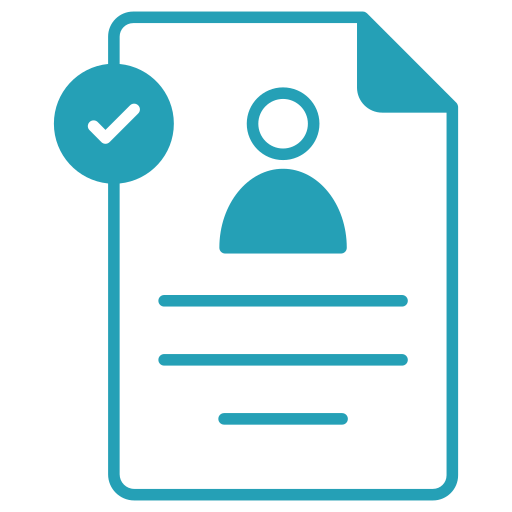Dot Net Training In Hyderabad
- Online Training
- Classroom Training
- Corporate Training
- Weekend Training
- One to One Training
- Customize Training
Dot Net Training

Table of Contents
About Course
- We have experienced instructors who are experts in prompt engineering. Our instructors have years of experience .
- They are passionate about teaching others how to use this powerful technology.
- We have experienced instructors who are experts in prompt engineering. Our instructors have years of experience .
Curriculum
1. HTML Basics
2. Text Formatting
3. Lists
4. Links and Anchors
5. Marquee Element
6. Images
7. Forms
8. Div and Spans
9. iFrame
10. HTML Comments
11. CSS Linking
1. Introduction to CSS
2. CSS Selectors & Properties
3. CSS Borders
4. CSS Margins and Padding
5. CSS Fonts
6. CSS Tables
7. CSS Background & Images
1. JavaScript Fundamentals
2. Variables and Data Types
3. Control Flow
4. Functions
5. DOM Manipulation
6. Using Popup Boxes
1. TypeScript Fundamentals
2. Datatypes in TypeScript
3. Types of Assertion Variables
4. Operators
5. Control Statements
6. Loops
7. Functions
8. Advanced TypeScript
Front End
1. Characteristics of .NET Core
2. The .NET Core Platform
3. .NET CORE architecture and Advantages
4. Build and run Cross platform apps
5. .NET Core – Environment Setup
6. .NET Core – Code Execution
7. Middleware
8. .NET Core – Modularity
9. .NET Core – Project Files
10. IIS Publishing & different cross platform deployments
11. Microservices using .NET Core
12. .NET Core – Windows Runtime and Extension SDKs.
13. .NET Core – Create .NET Standard Library .
14. What is .NET Framework
15. Comparison between .NET Framework & .NET Core
1. Features of C#
2. C# Compilation and Execution
3. General Structure of a C# Program
1. Data Types in C#
2. Value Types and Reference Types
3. Boxing and UnBoxing
4. Single Dimensional, Multi-Dimensional & Jagged arrays
5. Nullable Types
6. Implicitly Typed Local variables
7. Var vs dynamic
8. Is and as operator
9. Ref vs out keywords
10. The ‘object’ base class in .net
11. Equals() vs ==
12. String vs StringBuilder
13. Various String class methods
14. Default parameters, named parameters
15. Parse() vs TryParse() vs Convert Class methods
1. Various Types of .NET Projects
2. Tracing, Debugging, Build
3. Compile Options
4. Debugging Exception
5. Using watch and output window
6. What are Diagnostics?
7. Debug and Trace Classes
8. Creating multiple projects within one solution
9. Customizing Visual Studio Settings – Extensions, NUGet Package, Environmental
10. Structures and enums
11. The architecture of a class in C#
12. Instance, Class & Reference variables
13. Access Modifier
14. Abstract Classes
15. Constructors, Destructors, The GC
16. .NET Base class library
17. Inheritance in C#
18. Method Overloading
19. Method Overriding
20. Operator Overloading
21. Method Hiding
22. Access modifiers : private, pubic, protected, internal, protected internal, new
23. Anonymous types
24. Abstract classes
25. Sealed classes
26. Creating Interfaces
27. Implementing Interface inheritance
28. Declaring properties within Interfaces
29. Namespaces
30. Creating and using Generic classes
31. Indexers & Properties
32. Auto Implemented properties
33. Static Classes
34. Property Accessors
35. Partial types
36. Extension methods
37. Object Initializer
1. RegEx Class
2. Forming Regular Expression
3. Methods for Regular Expression
4. Exceptions in C#
5. Exception class hierarchy
6. Try block
7. Multiple catch blocks
8. Finally block
9. Purpose of throw keyword
10. Purpose of inner exception
11. Creating Custom Exception
1. Role of a Garbage Collector
2. Garbage Collection Algorithm
3. Finalize vs Dispose
1. System.Collections Namespace
2. Collection Interfaces
3. Collection Classes
4. The collection API
5. IEnumerable, IEnumerator, IComparor interfaces
6. Working with Generics
7. Creating Generic class, Generic Methods, Interfaces, Delegates
8. Collection Initializers
9. Iterators
10. Constraints
1. Extension Methods
2. Anonymous Type
3. Var and Dynamic
4. Introduction to Delegates
5. Events in C#
6. Anonymous Methods
7. Lambda Expression
1. Using StreamReader, StreamWritter
2. Using BinaryReader, BinaryWriter
3. Using File, FileInfo, Directory, DirectoryInfo
4. Serialization modes: Binary, SOAP, XML
5. JSON serialization
1. What is Reflection?
2. Using Reflection to read type information
3. Attributes.
4. Pre-defined Attributes
5. Custom Attributes.
6. Using Reflection to read custom attributes
1. Task Parallel Library
2. Threads Vs. Tasks
3. Thread state
4. Task Based Asynchronous Model
5. Async and Await
6. Using Locks
1. Record structs
2. Improvements of structure types
3. Interpolated string handlers
4. global using directives
5. File-scoped namespace declaration
6. Extended property patterns
7. Improvements on lambda expressions
8. Allow const interpolated strings
9. Record types can seal ToString()
10. Improved definite assignment
11. Allow both assignment and declaration in the same deconstruction
12. Allow AsyncMethodBuilder attribute on methods
13. CallerArgumentExpression attribute
14. Enhanced #line pragma
15. Warning wave 6
Back End
Introduction to .NET Core
1. Introduction , LINQ Syntax
2. Introduction to System.LINQ.Queryable
3. Query Operators
4. Select, from, Where
5. ofType
6. OrderBy
7. ThenBy
8. GroupBy, into
9. Select
10. SelectMany
11. Take, TakeWhile
12. First
13. FirstOrDefault
14. Single
15. SingleOrDefault
16. Aggregate functions Sum, Min, Max, Average, Count
17. Distinct
18. Intersect
19. Except
20. Join
21. LINQ projection
22. Deferred execution vs immediate execution
23. Let keyword
24. LINQ to Object
25. LINQ to DataTable
1. Overview of ORM Products
2. Entity Framework introduction
3. Using Database first Approach
4. Using Code First approach
5. Implementing Repository Pattern
a. Introduction & Benefits
b. Repository Pattern implementation
c. Setting up Entities in EFCore
6. Using LINQ to Entities to perform CRUD operations
7. SQL Query Logging
8. Migration & Database Update
9. Eager Loading Vs Explicit Loading Vs Lazy Loading
10. Raw SQL And Stored Procedures
LINQ and Entity Framework Core
1. .NET Core Theory
2. Introduction to ASP.NET Core
3. Setting ASP.NET Core Development Environment
4. Creating an ASP.NET Core Project
5. Project File and Program File
6. Startup Class and Service
7. Startup File, .Net Core Pipeline and Middleware
8. Routing in MVC and Endpoints
9. Launchsettings AppSettings and WWWRoot
10. Static Content
11. Shared Folder as well as ViewImports and ViewStart
1. Understanding DI
2. Dependency Chains & Dependency Methods
1. Introduction to Controller
2. Creating Controller
3. Introduction to Routing
4. Transfer Data
5. Conventional Routing
6. Attribute Based Routing
7. URL Routing
8. Endpoint Routing
9. Areas
10. Controller Actions
11. Passing Values to Actions
12. Action Return Types
1. Introduction to Model
2. Creating Our First Model
3. Code First Approach
4. Setting Up Connectionstring
5. Setting up DbContext as well as EntityFrameWork
6. Setting Up the DB Context in Our Startup File
7. Passing Data To The Controller
8. Server Side Validation and Client Side Validation
1. Viewbag and Passing Data From A Controller To A View
2. ViewBag And ViewData
3. ViewModels and Strongly Typed Views
4. ViewModels in Action
5. Add Styling and JS
6. Layout
7. Helper Class
8. View Component
1. Introduction to Filters
2. Filter Types
1. Session in .NET Core
2. TempData
3. Authentication in .NET Core & Implementing Authentication Identity •
a. Token Based Authentication -JWT
4. Authorization in .NET Core
5. Web Sockets
6. Deployment modes of .NET core Application
1. ASP.NET Core Microservices
2. Advance
3. Introduction to Docker
4. Choosing Between .NET 6 and .NET Framework for Docker Containers
5. Architecting container and microservice-based applications
ASP.NET Core MVC
Key Points

Flexible Learning Options
At Lernentek, we understand the importance of accommodating diverse schedules and learning preferences. That's why we offer flexible learning options designed to fit your lifestyle and career goals.

Experienced Trainers
Each trainer at Lernentek possesses a robust background in their domain, ensuring that the training curriculum is relevant, up-to-date, and aligned with industry standards and best practices.

Industry Driven Curriculum
Our curriculum is continuously updated to reflect the latest trends and technologies in the industry. We collaborate closely with industry experts and employers to ensure that our courses cover the most relevant topics and skills.

Live Doubt-Solving Sessions
Our live doubt-solving sessions are conducted in real-time, allowing you to interact directly with instructors and peers. This interactive approach fosters a collaborative learning environment where questions are encouraged and insights are shared.

Post-Training Support
At Lernentek, our commitment to your success extends beyond the classroom. We provide comprehensive post-training support to ensure you continue to excel after completing our courses.
Prerequisites
- Learn to write prompts for ChatGPT and other large language models
- Learn to write prompts for ChatGPT and other
Training Modes

Classroom Training

Online Training

Corporate Training

Weekend Training

One to One Training

Customize Training
Why Choose Us
- Multiple Real-Time Projects with live training
- Java Full Stack Developer Course with 100% placements assistance
- Unlimited Batches Access for 12 Month
FAQs
For any inquiries or additional information, you can reach out to us through our Contact Us page on the website, or directly via email at support@lernentek.com Our friendly staff will be happy to assist you with any questions you may have.
Lernentek is a premier training institute dedicated to empowering individuals with cutting-edge skills in We offer a wide range of courses including designed to meet the diverse needs of our students.
Enrolling at lernentek is easy! Simply visit our website at https://lernentek.com/ and navigate to the Courses section. Choose your desired course, select the enrollment option, and follow the prompts to complete your registration securely online.
